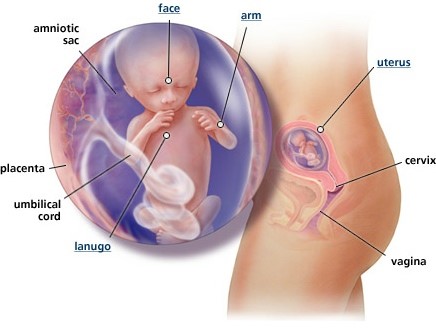- NAPPIES
- BABY FOOD & FEEDING
- BABY CLOTHING
- BABY EQUIPMENT
- FAMILY ESSENTIALS
- THE PET SHOP
- BROWSE SPECIALS
About The 2nd TrimesterAbout The 2nd TrimesterLots of things happen in this trimester. The digestive system slows down, which can cause a number of things to happen: constipation, heartburn, bloating, indigestion. Pigmentation will continue to increase, so you may notice the linea negra (dark line down the centre of the abdomen) and your nipples may start to darken. Your waist line will disappear, so you will look pregnant, baby movements will be felt, and your breathing will change as your baby grows. During this trimester you will typically see a healthcare practitioner every 4 weeks, unless you have a medical condition which requires a higher frequency. During these visits, information will be gathered about general well-being, weight gain, urine checks, blood tests and blood pressure, abdominal checks, foetal heartbeat checks, discussion of tests and procedures and other education and counselling where needed. Get used to being poked and prodded, as these procedures will only intensify as your due date gets closer. About YouWeek 14 is the first week of the 2nd trimester. A third of pregnancy is completed and pregnancy hormones are starting to level off, so statistically you should start to feel better- which means less or no morning sickness and more energy. Most women say that this is the best time of their pregnancy, because they feel well and enjoy their growing body without feeling weighed down. If you haven’t already started to do so, start moisturising your skin all over, as your skin and muscles stretch to accommodate your uterus, placenta and baby and moisturising helps prevent stretch marks (note that some skin types are more prone to stretch marks than others). You will find now that most of your regular clothes don’t fit at all. Pack them away for now, and start to shop for more maternity clothes that will fit your growing belly. *Tip: don’t go overboard with a whole new pregnancy wardrobe – buy a few key mix n’ match pieces for different occasions, like a pair of black pants for going out, a pair of casual jeans, some tops that can be dressed up or down. Also, be mindful that your feet will spread out during pregnancy –often from a half to a full shoe size…and they don’t shrink back! Hormones will cause your bowel muscles to start to relax, resulting in them working more lowly and less efficiently. Coupled with your uterus starting to press on your bowel, you can be prone to constipation. If this is the case, be sure to increase the fibre in your diet. Another downside of entering the second trimester is the possible development of haemorrhoids, which are dilated blood vessels around or inside the anus (common during or after pregnancy). They are caused by the decreased blood circulation in the area around the uterus and pelvic region because of the weight of the uterus, the growing foetus and hormonal changes. As previously mentioned, if this becomes a problem, eat more fibre, drink more water and consult a health practitioner if you experience too much discomfort. *Tip: I used to carry a pillow with me to restaurants, as wooden chairs feel even harder than normal when you suffer from haemorrhoids. Or actively seek out places with cushioned seats. About Baby
Baby is now 8-9.3cm long and has nearly doubled in weight from last week to 43 grams. By this week baby's ears have moved from the neck to the sides of the head, and the eyes have been moving gradually from the side of the head to the front of the face. The neck continues to get longer, and the chin no longer rests on the chest. Lanugo (the fine, short hairs that help keep the body heat inside baby), will form now and grow to cover the entire body. The skin is very thin and fat won't develop for several weeks, so a baby needs extra help in staying warm. This lanugo will cover the baby for several months and won't be shed until there is enough fat to keep it warm. When the fat is thick under the skin, the lanugo will fall off and end up in the baby's intestines as meconium (which is what comes out as the first dirty nappy). At 14 weeks, the baby's placenta is fully functional but remains larger than the baby until about 16 weeks (the placenta supplies a baby with oxygen, fats, proteins, vitamins and minerals as well as removing carbon dioxide and waste materials, by filtering them through the placental tissues attached to the uterus). This complex process of diffusion makes exchanges possible because the tiny blood vessels of mother and baby are incredibly close together, yet remarkably always separate. Remember that the placenta is not a barrier, but allows most substances in the mother's blood stream to cross over into the baby's blood stream. These include alcohol, nicotine, caffeine, natural remedies, medications, drugs and viruses, possibly affecting the baby's growth and development (depending on what stage the pregnancy is at). So it is important to think carefully about what you take before taking it, and if you are not sure, ask a health practitioner. Also, consider what you are eating (don’t eat raw proteins such as uncooked eggs in certain desserts, salami, raw meat or fish, as they can contain bad bacteria), and avoid unnecessarily exposing yourself to chemicals such as hair dyes. Note that this article contains general information only and is not intended to replace advice from a qualified health professional. 
|